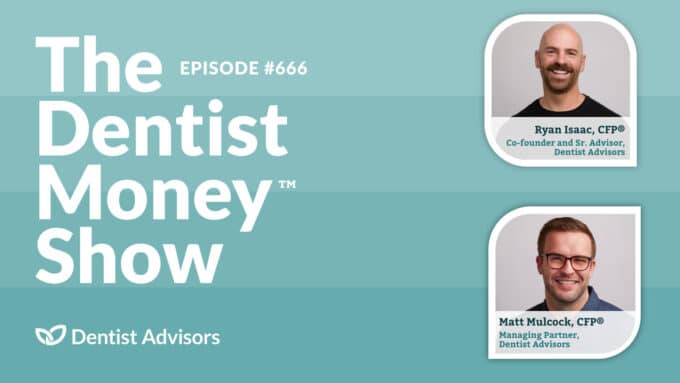TL;DR – Listen to the article post:
Your brain accounts for 2% of your body weight but is responsible for 25% of the energy you burn daily. If it were a piece of equipment in your office, your brain would be the most important but also the most expensive. Naturally, your brain craves efficiency. When there is a shortcut to take, your brain is going to take it. Enter biases.
Cognitive biases are often defined as errors in judgment. But I prefer how German psychologist, Gerd Gigerenzer, interprets them as “rational deviations from logical thought.” Biases are ways to simplify things in a complicated world.
If you are unaware of your brain’s deviations, you’ll be more likely to make poor decisions that can have significant consequences. This is especially true when it comes to money. Biases, if left unchecked, can cost you.
Here are three biases that get in the way of making good money decisions:
Overconfidence Bias
Behavioral economist and Nobel Prize winner, Richard Thaler, once said, “Perhaps the most robust finding in the psychology of judgment is that people are overconfident.” This bias refers to people’s inflated beliefs about their abilities or judgments. It’s reflected as an overestimation of one’s skills and an underestimation of potential risks. Numerous studies over the past several decades support this finding. For example, over 90% of Americans believe they are better drivers than average.
When it comes to investing, overconfidence can cost you when you believe you can outguess or time the market. This bias also explains one of the reasons why get-rich-quick schemes or even the lottery are so appealing. You overestimate the likelihood of success while downplaying the probability that it won’t work out.
Mistaking luck for skill is one of the most significant risks for an investor. And that mistake comes from our overconfidence bias.
Bandwagon Effect
This bias can be summed up with the old childhood excuse, “Well, everyone was doing it!” The bandwagon effect is when people adopt certain beliefs or behaviors because others are doing the same thing. This effect is born from the power of social momentum, which is even more potent in our technologically-connected world. It has never been easier to see what others are doing.
The day trading crypto craze that ensued during 2020 and 2021 is a perfect example of the bandwagon effect. Everyone from major media outlets to Uber drivers jumped in with both feet, hoping for life-changing money overnight. Once it started, the wave grew to uncontrollable proportions. The main issue is that the underlying assets causing the hysteria were, for the most part, completely worthless.
Making decisions based on the opinions and stories you hear on social media is a quick way to lose a lot of money. And in return, you get back a lot of heartache.
Sunk Cost Fallacy
Imagine you bought a ticket to an upcoming football game for $100. You’re super excited to take in the action with some friends. On the day of the game, you get sick. Not to mention, the weather turns on you, and a massive thunderstorm rolls in. You hear that a car accident makes traffic nearly impossible to navigate. At this point, the downsides seem to outweigh the benefits of going to the game. So why are you still likely to go?
The sunk cost fallacy is a bias that leads people to continue investing time, money, or energy into an endeavor or a decision simply because they’ve already invested their resources. This is true even when further investment is unlikely to lead to a quality outcome. Although the cost is “sunk,” you’ll allow it to influence your decision about future investment, even if it is no longer rational.
This commonly leads to holding onto low-quality assets or continuing a business endeavor for no reason other than that you’ve already invested time and money into it. You hang on to hope that it may recover or something will change.
The only relevant factors to consider are the ones that impact you right now and the probability of success in the future. What you’ve invested in the project, asset, or person is not a rational reason to stick with it.
Conclusion
There are an immense number of ways your brain deviates from logical thought. Over 180 observable cognitive biases impact how we process information and make decisions. To combat the effects of these biases, it is critical first to understand they exist. Next, accept that you’ll never be able to stop your brain from taking shortcuts and being influenced by the outside environment. Instead, creating a system that protects you from yourself is essential. Setting up an automatic investing and savings system where a set amount of money goes into a well-diversified portfolio regularly is a simple example of protecting yourself from biases.
Having an accountability partner can also be an impactful way to protect yourself from mind tricks. This person should be able to point out when your actions don’t align with your values or long-term goals. They should be able to help you reset and get back on track when they notice a deviation from logic or your best interest.
Your brain is good at many things, but helping you make good long-term decisions with your money is not always one of them. Mind your money by being aware of and protecting yourself from your biases. Or it may cost you more than you think.
The allure of complexity
Few things in life grab people’s attention like an investment pitch. These “sure-fire” opportunities come from different sources: a rich neighbor, a brother-in-law, a “good guy” from church, a group of friends on a trip, etc. We hear about these conversations all the time from our clients who are intrigued by the promise of big returns.
If it sounds too good to be true, it usually is. Risk and return are married in investing. If someone is coming to you with a “risk free” idea, then you should probably turn and run the other way. As an investor, you are compensated for taking risks. To distract from that reality, the pitch often includes something eloquent about the complexities of the investment—going through the intricacies of the idea, and using terminology you have never heard but sounds really smart. “I might not know what they are saying, but they obviously do so I should listen.”
As an advisor, the first question I always ask clients is, “Can you explain it to me?” As a general rule of thumb, if you can’t explain an investment strategy to someone else in a few sentences then it probably isn’t a good idea, or you need to go back and ask a lot more questions before putting your hard earned dollars into something you can’t control. Complexity sells, but doesn’t usually perform.
Aggressive tax strategies
People hate taxes. If I had a dollar for every time I’ve heard some version of, “I hate taxes. How can you help me get out of paying taxes?” I’d already be retired. I’ve never met a single person who likes to pay taxes. My favorite response to this came from a CPA who once told his client, “I’d be happy to pay your taxes for you. If you pay me more, that will be a business deduction for you and I’ll gladly pay the taxes for you.”
Now it is true there are tax strategies that can save you money on your tax return. You should be taking advantage of these, but dentists can often get duped by looking for more creative ways to save on taxes. They can be all too willing to buy an extra piece of equipment or a new vehicle for the write off. If there is a legitimate business reason to make a purchase then I’m on board. But in a lot of cases for dentists, the motivation is often driven by the ability to save on taxes whatever the cost. Remember that if something is 30% off, it’s also 70% on.
By seeking more “complex tax strategies” dentists tend to get in with the wrong crowd. As a dentist, you are in the public eye. There are sharks in the water. People know dentists make money, and they are willing to sell you anything to get to it. There are entire marketing campaigns for “investments” around “complex tax strategies”. I can’t use air quotes enough in this section. Tax-saving strategies usually aren’t real tax savings where the taxes go away. For the most part, you’re just shifting your payment to Uncle Sam from now until later.
Keeping up with the Joneses
As a dentist, you typically don’t graduate from dental school until you are in your late 20s to early 30s. You watched your contemporaries start earning money and purchasing homes while you were still surviving on Ramen noodles and racking up six-figure student loans. It’s impossible not to feel behind when you first start.
One of the worst ways you can get duped is believing you somehow have to keep up with the spending habits of people of similar incomes in your early career. If you are comparing incomes with people during the beginning of your career, you are not comparing the right numbers. They probably bought their homes when prices and interest rates were half of what they are now, or with equity they built over a decade. They probably don’t have $400k in student loans, and they probably aren’t paying on a $1M practice loan. Don’t worry you will get there, but patience is hard.
I know it may feel like everybody in their 30s is already in their dream home, has millions in their investment accounts, and have their lives figured out. The secret is that they actually don’t, and you don’t have to either. Remember spending is what you see, wealth is what you don’t see. The most important thing you can do early in your career is discipline yourself enough to be able to save between 15-20% of your income.
Searching for wealth outside of dentistry
Sometimes I joke that going to dental school is the most expensive real estate license you’ll ever get. It’s amazing how many dentists only a few years into their careers are looking to get out of it. This is not unique to dentistry though—it’s the age old feeling that the grass is always greener on the other side.
There are no magic beans, silver bullets, or home run investments that will help you retire at 40. Despite this, too many people run toward real estate, permanent life insurance, DSO offers, and outside business “opportunities” as if it will solve all of their problems. The truth is that pursuing these alternative investments too early in your career can be detrimental to your long term success.
Dentistry is an amazing career with incredible earning potential, and a chance to build generational wealth. Does it have its downsides? Yes, but so does every profession. Average dentists tend to compare their situation to the top 5% of other professions, but they never seem to compare their situation to the average majority of other professions. You compare yourself to the successful business owner, but not to the 90% of startups that fail within the first year. A great dentist getting average returns tends to do much better than an average dentist getting great returns.
I hope you made it through April Fools unscathed. And I hope you’ll think twice before getting tricked into these common money mistakes

Matt is co-host of the Dentist Money™ Show podcast and author of the “Money Matters” blog. Learn more about Matt.




